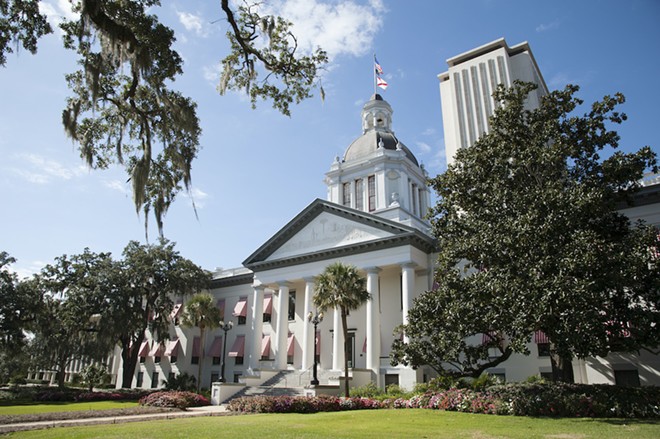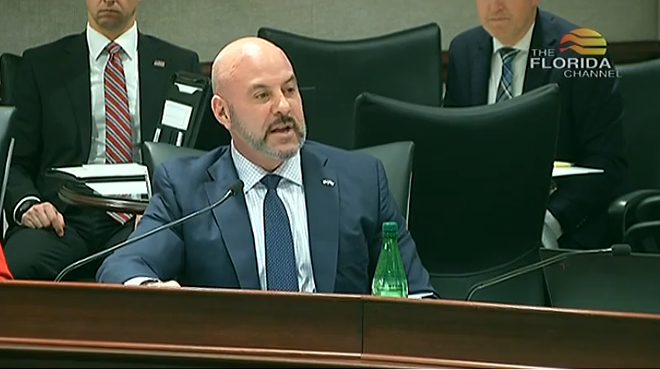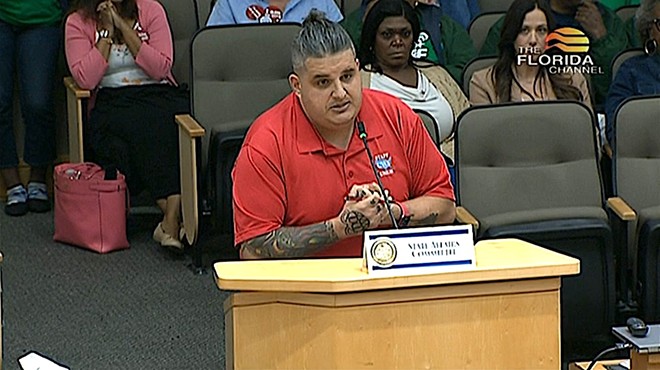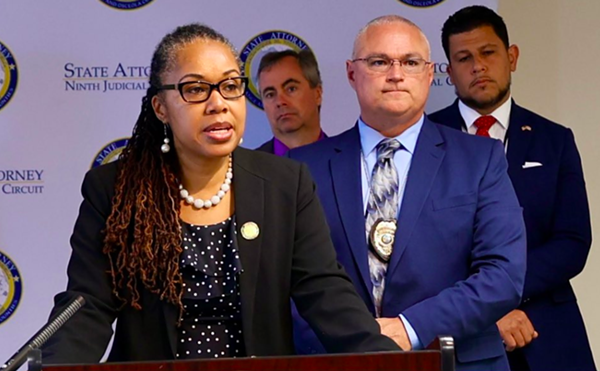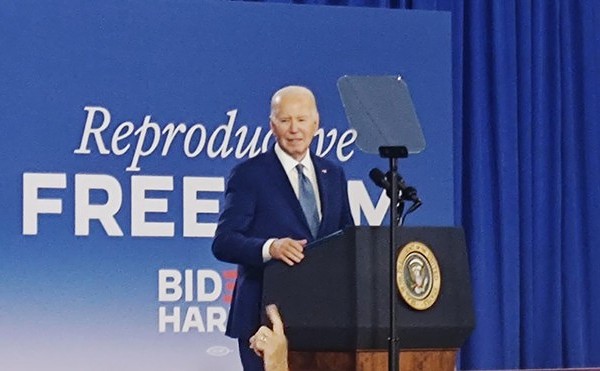The legislation’s GOP sponsors, Rep. Dean Black and Sen. Blaise Ingoglia, have described the legislation as a “follow-up” to last year’s Senate Bill 256. Others have referred to it as a “glitch bill,” since it deals with ambiguities, “loopholes” and unintended consequences of last year's law, which prohibited public employees from having union dues automatically deducted from their paychecks, and established a minimum 60% membership threshold for most public sector unions.
This means, in order for a union to remain certified, at least 60% of employees need to be dues-paying members, or risk having their union dismantled.
Similar policies, touted as “paycheck protection,” have been pushed in states across the country over the last two decades by corporate interests organized through the Chamber of Commerce, American Legislative Exchange Council, and other anti-union special interest groups with the aim of undermining union power. While support for unions among Americans has gone up in recent years, union membership in recent decades has broadly declined.
The current situation in Florida is grim. Since the passage of Florida’s “paycheck protection” law last year, thousands of government employees — from blue-collar maintenance workers, to clerical staff at a number of public universities — have already lost their union representation. While many unions have been able to boost their membership, or otherwise petition the state to remain certified, a number of unions (and their contracts) could be on the chopping block next.
This year's legislation, filed by the same GOP legislators as last year, largely aims to address issues experienced by unions representing sworn law enforcement officers, firefighters, and correctional and probation officers, which were supposed to be carved out of the legislation.
Critics have protested these carveouts as a targeted political attack against teachers’ unions, which frequently endorse Democrats for office and became a punching bag for Florida Gov. Ron DeSantis ahead of his unsuccessful bid for U.S. President. The bill sponsors have described them as workers belonging to a "special risk" category who deserve special privileges (though apparently they don't need that touted "protection" of their paychecks).
What became apparent through the rulemaking and implementation process of last year’s bill, however, is that the vague directives of last year's bill language caused some crucial misinterpretation as to which unions were actually exempted.
The issue sowed confusion, and led police and firefighter unions to file a complaint against the state’s regulating agency, the Public Employees Relations Commission.
This year's legislation, Senate Bill 1746, largely aims to address the complaints of the police and firefighter unions — which generally support Republican candidates for elected office — by adding additional carve-outs for unions representing paramedics, 911 telecommunication employees, and EMTs.
This is something Democrats tried to do last year, but Republicans rejected the idea.
The bill, which now heads to Gov. DeSantis for his signature, also:
Repeals an unpopular auditing requirement that even the cop and firefighter unions found difficult to comply with. Last year’s law required unions to submit annual financial statements audited by a certified public accountant, which GOP Sen. Joe Gruters (a CPA by trade) warned would cause issues for smaller unions with fewer resources. This year’s bill repeals that requirement and only requires the financial statement to be “prepared” but not “audited” by a CPA. (Yes, apparently this makes a difference.)
Requires public employees to fill out a new state-mandated membership form in order to become a union member. (Union leaders and even some Republicans have described this as unnecessary, since unions already have their own forms.)
Could make it harder for mass transit unions — which were similarly offered a partial carve-out last year — to get waivers allowing them to be exempted from last year’s regulations.
Adds new information that unions are now required to submit to PERC. Under the new law, unions will have to report more data on expenditures and how often they collect union dues. It also gives PERC — an agency led by three DeSantis appointees — broader discretion to request additional information.
Gives PERC authority to dissolve (“decertify,” in labor-speak) unions that “intentionally” misrepresent any of the information they submit to the state or refuse to allow PERC to “inspect” membership forms or revocations (i.e., employees wanting out of the union).
Public records obtained by Orlando Weekly show that these reforms were shaped in part through lobbying efforts of the police and firefighter unions plus out-of-state special interest groups like the Mackinac Center, based in Michigan, and the Freedom Foundation, based in Washington.
Email communications also show exchanges between Sen. Ingoglia's office and PERC, specifically concerning the CPA issue, plus a short exchange with a former lobbyist for the Florida chapter of the billionaire-funded group Americans for Prosperity.
Rep. Dean Black, the House bill sponsor of the union reform bill, has described the legislation as “pro-worker.”
On the House floor Wednesday, Black argued that the reforms are meant to promote transparency and protect workers from bad actors in union leadership.
“This is a worker protection bill,” said Black, after hearing pointed criticism from multiple Democratic colleagues. “I am mystified as to how we could oppose the requirement that unions provide financial statements to their union members,” he added.
He then proceeded to cite a New York Post article, published last year, bashing Florida’s largest teachers’ union, the Untied Teachers of Dade. The article claimed the union was “strong-arming” teachers, pressuring them to join the union (another word for that: recruitment, or organizing).
Public records show the very same article was texted to Black by a lobbyist for the Freedom Foundation last year.

“Thank you, I’ll engage on this,” Black texted in response. “Sounds good,” lobbyist Christian Camara replied. “Let us know if you need any info on this. We got wind of this and helped the teachers file the complaints.”
“Good work!” Black replied enthusiastically.
Florida Democrats, on the other hand, and organized labor leaders, have levied harsh criticism on the glitch bill. Rich Templin, director of politics and public policy for the Florida AFL-CIO, said the legislation doesn’t go far enough to address other procedural issues that have significantly increased the workload for PERC and have made it difficult for unions to comply with new regulations.
“Right now the system is incredibly complicated,” Templin told a panel of state Senators last month.
“It's going to be incredibly expensive. It's going to require a doubling or a tripling of personnel from our estimations — and so we just have some really technocratic, bureaucratic fixes that we want to see be made to the bill and make it more efficient.”
Unions wanted lawmakers to axe the new membership form requirement, for instance, which they've argued is “duplicative.” Templin also suggested changing the date that unions are now required to annually submit registration renewal paperwork (which includes financial and membership information).
Currently, it’s tied to the date that unions were first certified. For many, this was literally decades ago, and it varies by union.
Templin told lawmakers it would make more sense — and reduce the likelihood of infringing upon workers’ collective bargaining rights under the Florida state constitution — to tie the date of registration renewal to the end of the union’s current contract.
Sen. Gruters, one of the only Republican lawmakers who voted against the bill, tried to file amendments to accomplish these aims last month, with no success. Both failed to garner majority support from the GOP-dominated chamber.
Ahead of its final vote Wednesday, Florida Rep. Robin Bartleman, D-Weston, criticized the bill’s targeted carve-outs, and described the bill as “union busting.”
“This is all about tearing down people who disagree with you and people you do not like,” said Bartleman.
Rep. Eskamani, D-Orlando, uplifted the importance of passing policies that support, not hinder the rights of employees in the workplace. “We're hurting them with policies like this,” said Eskamani.
The bill nonetheless cleared the Florida House in a 77-36 vote Wednesday, with three Republicans — Reps. Susan Plasencia, Karen Gonzalez-Pittman, and Jim Mooney — joining Democrats in opposition. GOP Rep. Vicki Lopez originally voted 'yea' but changed her vote to 'No' after roll call.
The bill already passed the state Senate in a 21-14 vote last week, also with three Republicans in opposition: Sens. Gruters, Jennifer Bradley and Corey Simon.
The legislation now heads to Gov. DeSantis for final approval, as legislation aimed at boosting teacher salaries (HB 13), re-establishing a state agency to combat wage theft (HB 1199), and provide 12 weeks of paid parental leave for state employees (SB 128) is left in the dust.
This story has been updated to clarify that Rep. Vicki Lopez changed her vote on the legislation after roll-call.
Follow us: Apple News | Google News | NewsBreak | Reddit | Instagram | Facebook | Twitter | or sign up for our RSS Feed

